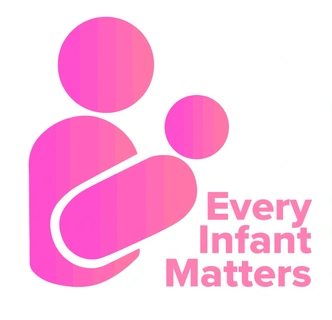
Every Infant Matters Introduction on Indiaspora
This article is being republished from the original article published on Indiaspora. You may visit original article here.
Rimi is a 4-year-old girl. She is severely malnourished. She was born with normal vision, but her eyesight started deteriorating a year back. Today she is completely blind. She is the picture of frustration. She keeps hitting her mother and screaming in terror. Suddenly, her world has been plunged into darkness.
This is the shameful atrocity faced by millions of hungry children. Half a million children become irreversibly blind every year because of the deficiency of an essential vitamin in their diet, Vitamin A, with India, sadly, having the highest burden. 200 million children worldwide suffer this deficiency. These are children who live in extreme poverty, who never get milk, eggs and fruit. They are severely malnourished. Vitamin A deficiency lowers the immunity, making these children prone to severe infections. Half of those children who become blind, die within a year.
It is while working as a Resident doctor in a busy hospital that I saw all of this on a daily basis. It was a nightmare. In one epiphanous moment I decided to dedicate my life to these children. In 2017, I founded Every Infant Matters (www.everyinfantmatters.org) with the mission of providing health and nutrition to marginalized, malnourished women and children at the very last mile. Our flagship project, a low cost, high-impact intervention, consists of giving just 2 drops of Vitamin A, as per government guidelines.
The challenges
The Indian Government runs several programs to combat malnutrition, and Vitamin A is included in the National Immunisation Schedule. The issue is lack of access. One of the best sources of Vitamin A, breast milk, is completely free of cost. And yet we are still failing our children. This is because they often live in hard-to-reach areas, isolated by rocky terrain and harsh climates, or they are tribals, socio-culturally isolated. Sometimes parents cannot afford to miss work and wages to take their child to the hospital for timely vaccines and supplements. Gender bias is rampant. The “good” food is directed towards the male child, and the girl is left to starve. And there are mothers who are malnourished themselves, producing inadequate and poor quality breast milk.
When children become blind, parents become completely distraught, terrified, unable to comprehend the situation. Many go into denial. Many start visiting faith healers and witch doctors for herbs and potions. Several others are resigned to the sheer helplessness of the situation by saying: “This is Gods’ will”. Others are completely broken at the prospect of taking care of a blind child, more so if it’s a girl, and pray to God that the child should die.
Our approach
We have a 2-way approach. We hire and train local people, mostly women, from within communities as health providers who go door to door to provide vitamin A supplementation. These drops cost less than a cup of chai. We also deworm children to make sure that intestinal worms are not absorbing nutrients from the body. We provide holistic health education- promoting breastfeeding, immunisation and counselling on how to give good nutrition at low-cost.
The second approach is working via partnerships. Our biggest partnership is with the Government of India. We train the government’s ASHA and other health workers to implement our projects. We also partner with non-governmental entities who work at a grassroots level.
Our impact
So far, we have given Vitamin A to 427,110 children to save them from the horror of permanent blindness and untimely deaths. We are present in 15 states of the country. We are carrying out a large scale project in District Kargil, going right upto the Indo-Pakistan border, where the temperature reaches an incredible -48 degrees centigrade. We work in the most challenging areas, border villages of North-East India, deserts of Rajasthan, mountains of Uttarakhand, and places such as Gurez in Kashmir at an altitude of 33,000 feet. In 2019 we crossed international borders to reach Nigeria, and in 2020, in spite of the ongoing Covid pandemic, we replicated our model in the Philippines.
Evaluation
Last year, SVP India (Social Venture Partners India) carried out an independent third-party analysis of our model and costs, and found that our cost of giving Vitamin A supplementation is only INR 48. Click here to access the full report.
Though the problem of Vitamin A deficiency is worldwide, the need is highest in India. The cost of Vitamin A is only rupees 20, but the cost of not giving Vitamin A is astronomical- one that is borne by families, economies and entire countries. Persistent gaps in vitamin A coverage must be addressed on a war footing. If not, children will continue to suffer and die, and mothers will mourn loud and long.
Click here to join the fight against poverty, hunger and disease.
